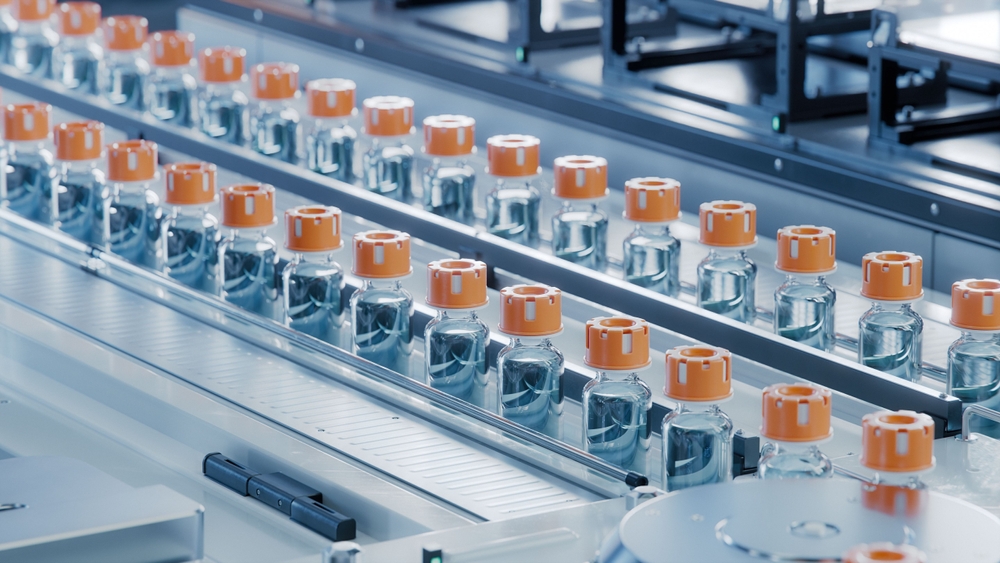The medical devices industry is one of the most dynamic and competitive sectors within healthcare, where innovation and speed-to-market are critical to success. In this landscape, gaining real-time insights into competitors’ strategies, product developments, and market positioning is essential for staying ahead. Traditional methods of competitor intelligence, such as manual data collection and analysis, are no longer sufficient due to the sheer volume and complexity of information. This is where Artificial Intelligence (AI) comes into play.
AI has become a game-changer for medical device manufacturers, but its role is not only redefining product development, clinical diagnostics, and operational efficiency but is also changing how companies gather, analyze, and act on competitor intelligence. This article will explore the role of AI in shaping strategic decision-making for the medical devices industry.
How AI helps medical device companies in collecting and analyzing vast amounts of data
With the sheer volume and complexity of data—both structured and unstructured—gathering actionable insights manually has become increasingly difficult in the medical devices industry. This is where Artificial Intelligence (AI) comes in, offering tools to efficiently collect, organize, and analyze massive datasets.
| Category | AI Use Case | Details | Examples |
| Unstructured Data Analysis | Natural Language Processing (NLP) | Analyzes text data (e.g., research articles, patents, social media posts) to extract key topics, sentiment, and trends. Identifies perceptions around competitor products. | Medtronic – Uses NLP to analyze clinical documents and patents for competitor innovations. Abbott – Employs NLP to track social media sentiment on new devices. |
| Sentiment Analysis | Analyzes customer feedback and social media mentions using NLP to gauge perceptions and emotions about competitor products. Helps understand market sentiment. | Zimmer Biomet – Uses sentiment analysis to evaluate customer reviews and social media mentions. Siemens Healthineers – Tracks market sentiment for product launches. | |
| Multimedia Analysis | AI-based tools analyze multimedia data (e.g., product images, videos from events) to extract visual insights, such as design intricacies and operational setups. | Medtronic – Uses AI-based image recognition to analyze competitor product designs. Philips – Employs video analysis for operational benchmarking in production. | |
| Structured Data Analysis | SQL-Based Analysis | Structured data is stored in relational databases like MySQL or PostgreSQL and queried using SQL for complex insights. Examples include sales trends, production efficiency, and supply chain metrics. | Medtronic – Uses SQL databases for tracking sales data and operational performance. Johnson & Johnson – Employs SQL-based analysis for supply chain optimization. |
| Predictive Analytics and Machine Learning | Uses machine learning models to forecast trends such as market demand, pricing changes, and competitor strategies. | GE HealthCare – Leverages ML for demand forecasting and market trend prediction. Philips – Uses ML models to forecast product development timelines. | |
| Data Visualization Tools | Platforms like Tableau and Power BI create visual formats (charts, dashboards) to compare performance metrics against competitors. Examples include tracking clinical trials and benchmarking KPIs. | Stryker – Uses Tableau to visualize sales performance and competitor data. Boston Scientific – Implements Power BI for clinical trial progress tracking. |
How AI helps medical device companies in real-time monitoring of competitors’ activities
Medical device companies operate in a highly competitive market where staying informed about competitors’ activities is critical for strategic decision-making. Traditional methods of gathering competitor intelligence, such as manual data collection and periodic reporting, can be slow and resource intensive. This is where Artificial Intelligence (AI) steps in, transforming how companies collect, analyze, and respond to competitor activities in real-time.
AI helps medical devices companies with their competitor monitoring initiatives by:
- Automating the collection of competitor data from diverse sources, such as websites, social media, regulatory filings, clinical trial databases, and patent repositories.
- Tracking and analyzing competitor product launches, FDA approvals, and patent applications in real-time.
- Forecasting competitors’ strategic moves by analyzing historical patterns, industry trends, and current data points.
- Monitoring social media platforms, forums, and online medical products/devices review sites to capture real-time sentiment around competitors’ products and services.
- Benchmarking a company’s performance against competitors in real-time by tracking key performance indicators (KPIs) such as product quality, market share, clinical trial outcomes, and sales figures.
- Streamlining regulatory monitoring by tracking competitors’ regulatory filings and compliance status.
How AI helps medical device companies in Competitor Benchmarking
Medical device companies are increasingly leveraging AI to conduct real-time competitor monitoring across various sources, such as regulatory filings, clinical trials, patents, and financial reports. AI platforms scan multiple data points to provide instant updates on competitors’ strategic moves, such as product approvals or changes in pricing strategies. AI can help renewable energy companies determine whether their competitors are achieving key performance indicators (KPIs), such as:
- Product Quality and Compliance
– Product Quality: The most critical metric for medical device manufacturers is product quality. This encompasses the safety, effectiveness, and reliability of their devices. Maintaining high product quality ensures compliance with regulatory standards and builds trust with customers.– Regulatory Compliance: Medical devices are subject to stringent regulations from bodies such as the FDA in the United States and the European Medicines Agency (EMA) in Europe. Regular audits, compliance with standards like ISO 13485, and adherence to post-market surveillance requirements are essential metrics for success. - Innovation and R&D Efficiency
– Product Development Timeline: The ability to bring innovative medical devices to market quickly without compromising safety or effectiveness is a crucial differentiator. Medical device companies that can streamline their R&D and regulatory approval processes can capitalize on first-mover advantages and quickly address emerging healthcare needs. This is particularly important in competitive therapeutic areas such as cardiovascular devices, diagnostics, and AI-enabled imaging systems.– Pipeline Strength: A robust pipeline of next-generation devices is a strong indicator of a company’s long-term growth potential. Companies that maintain a diverse portfolio of products in different stages of development can better withstand market fluctuations and maintain a steady stream of innovations. This is especially critical in high-tech areas like robotic surgery, AI-enabled diagnostics, and implantable devices, where the pace of technological advancement is rapid. - Supply Chain and Operational Efficiency
– On-Time Delivery and Lead Times: Efficient supply chain management and short lead times are crucial for meeting customer demands, particularly in a globalized industry where disruptions can have significant impacts. Managing these factors efficiently is crucial, especially for products that require precise delivery timing, such as surgical implants, diagnostic equipment, and consumables for medical procedures.– Cost Management: Operational efficiency, measured through metrics like cost of goods sold (COGS) and production cycle times, helps companies maintain competitive pricing without sacrificing quality. - Sustainability and Environmental Impact: With the growing focus on sustainability, companies are increasingly judged on their environmental performance. Metrics like carbon footprint, waste management, and energy efficiency are becoming more critical for both regulatory compliance and corporate reputation. The medical device industry is beginning to shift from a linear to a circular economy model. This means designing devices that are easier to recycle, refurbish, or reuse.For instance, companies are exploring the reprocessing of single-use devices (SUDs) to reduce the volume of medical waste sent to incineration or landfill. Leading firms are also considering how to reduce device size, switch to more sustainable batteries, and utilize additive manufacturing to minimize material waste.
Looking into the future: AI and the Evolution of Competitor Intelligence
As AI continues to evolve, its role in competitor intelligence in the medical devices industry will only become more sophisticated. Some of the emerging trends include:
- AI-Powered Product Feature Comparison: Medical device companies are also utilizing AI to perform in-depth competitive product feature comparisons. AI tools can extract key details from clinical trial results, regulatory filings, and scientific publications to analyze and compare specific features of competitor devices. For example, AI is used to benchmark safety profiles, clinical outcomes, and user feedback of different orthopedic implants or diagnostic tools.
- AI-Powered Regulatory Compliance and Risk Management: The medical devices sector is heavily regulated, making compliance a critical area for competitive benchmarking. AI tools are increasingly being used to monitor competitors’ regulatory submissions and compliance statuses. By tracking FDA filings, CE mark certifications, and compliance-related press releases, companies can stay updated on where their competitors stand in terms of regulatory approvals and potential compliance risks.
Conclusion
AI is revolutionizing how medical device companies conduct competitor intelligence by enabling real-time insights, predictive analysis, and comprehensive benchmarking by enabling more and more sophisticated data analysis. As the industry becomes more competitive, companies that harness these AI capabilities will be better equipped to anticipate competitor moves, optimize their product strategies, and capture market opportunities.






 Hi, This is Emma. Let’s get the conversation started!
Hi, This is Emma. Let’s get the conversation started!